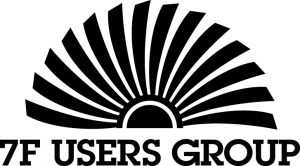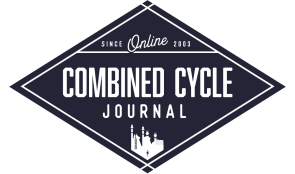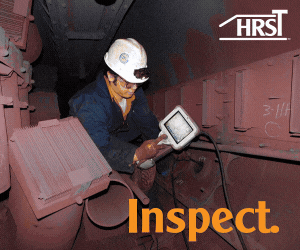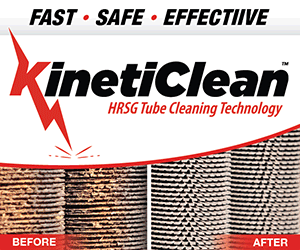 A valuable feature of Power Users conferences is audience polling, which was pioneered by the 7F Users Group a few years ago. The steering committee and presenters use polling to ask owner/operators for their opinions on industry trends, the information needs of attendees, etc. Because the feedback is virtually instantaneous, it can identify where clarification or more detail is required on a particular subject during the presentation of interest.
A valuable feature of Power Users conferences is audience polling, which was pioneered by the 7F Users Group a few years ago. The steering committee and presenters use polling to ask owner/operators for their opinions on industry trends, the information needs of attendees, etc. Because the feedback is virtually instantaneous, it can identify where clarification or more detail is required on a particular subject during the presentation of interest.
Below are some of the polling questions asked during the 7F 2020 Digital Conference. The responses both characterize the audience and provide a snapshot of what your industry colleagues are thinking on topics of importance to owner/operators. Users can access presentations from the conference, a plethora of recorded technical presentations, and ask questions on the forum at the Power Users website.
Audience
How many times have you attended a 7F Users Group conference (including this year)?
My first meeting, 46%
Two years, 20%
Three to five years, 21%
Six or more years, 13%
How would you rate your level of 7F knowledge?
Newbie, 14%
Rookie, 10%
Intermediate, 37%
Seasoned, 25%
Expert, 4%
What is your primary role?
Maintenance manager, 12%
Plant manager, 10%
Maintenance engineer, 16%
Turbine engineer, 28%
Asset manager, 11%
Other, 22%
How often do you interact with power traders or dispatchers?
Multiple times a day, 7%
Daily, 22%
Weekly, 12%
Rarely, 29%
Never, 29%
General
What is the average age of your 7F and steam-turbine units based on COD?
Less than 10 years, 15%
10-15 years, 24%
16-20 years, 48%
More than 20 years, 13%
Operations
What system/component gives you the biggest headache, or impacts reliability the most, on your unit(s)? Check all that apply.
Valves (for example, gas, compressor bleed valves, etc), 45%
Instrumentation (for example, transmitters, T/Cs, etc), 38%
Protection systems (for example, haz-gas detection, etc), 14%
Inlet filtration system, 4%
Covid-19, 12%
Starting system (for example, static starter, etc), 7%
Three years into the future, how do you see your CCGT operating profile changing?
More starts, fewer hours, 50%
More starts, more hours, 13%
Fewer starts, fewer hours, 5%
Fewer starts, more hours, 16%
No change, 15%
Three years into the future, how do you see your CCGT operating and ramp profiles changing?
More part-load operation, more ramping, 65%
More full-load operation, less ramping, 6%
More full-load operation, more ramping, 9%
More part-load operation, less ramping, 3%
No change, 16%
Which type of flexibility would you choose if you could upgrade your plant today?
Higher maximum output, 17%
Lower minimum output, 31%
Faster ramping, 5%
Faster startup, 12%
All of the above, 35%
Plant managers, maintenance managers/engineers, turbine engineers: If you had the ability to cost-effectively cycle overnight versus turndown, would you want to cycle?
Yes, 29%
Absolutely not, 49%
Maybe, 22%
Traders, asset managers: If you had the ability to cost-effectively cycle overnight versus turndown, would you want to cycle?
Yes, 41%
Absolutely not, 37%
Maybe, 22%
Which type of generating unit do you think the more flexible CCGT displaced to produce additional megawatt-hours?
Less-flexible CCGTs, 21%
Simple-cycle GTs, 36%
Steam turbines, 17%
All of the above, 26%
How would you react if your trader/dispatcher asked you to cycle between 2 and 4 a.m.?
No way, 26%
Are you crazy? 21%
OK, as long as power payments make up for the increased maintenance cost, 54%
What was the cause of your last failed start (pick one only)?
Valves, 23%
Static frequency converter, 3%
Burners and nozzles, 7%
Controls, 22%
Instrumentation, 20%
Hardware, 8%
Excitation and generator, 14%
Other, 4%
What concerns you the most at your site for forced-outage days (pick one only)?
Transformer, 19%
Instrumentation, 29%
Rotor, 15%
Bearings, 7%
Steam-turbine unavailable, 19%
Other, 11%
What is your most recent annual unit/block start/stop count on average?
Fewer than 100 start/stops per year, 67%
100-200 start/stops per year, 33%
More than 200 start/stops per year, 0%
In the last 10 years, what start/stop count trend are you experiencing?
Minimal or no change, 56%
Up to 50% increase, 29%
Roughly doubled, 11%
More than doubled, 3%
Which 7F HGP TIL most keeps you up at night?
2045, 7F AGP Stage 3 bucket tip shroud creep, 40%
2181, Stage 1 nozzle creep degradation model, 23%
2006, 7F and 9F Stage 3 bucket airfoil distress, 17%
Other/none, 20%
Maintenance
What rodent issue have you seen the most?
Cable damage in cable tray, 27%
Wire damage in electrical cabinets, 38%
Insulation damage on piping, 15%
Other, 20%
Do you currently use adjustable rigging in your lift planning for turbine rotor or case removal?
Yes, 66%
No, 34%
Combustion
How familiar are you with gas-turbine combustion?
I’m a flame-stability expert, 5%
I’m pretty good with what runs in my units, 42%
I know the difference between a DLN 2.6+ and DLN 2.6, 27%
Harry Potter’s wand must be involved, 20%
Gas turbines have combustors? 7%
What is your biggest concern when it comes to combustion operability?
Tuning, 24%
Hardware, 22%
CDM and T/C health, 17%
AutoTune, 15%
Cold weather, 17%
Nothing, my unit runs well, 6%
Have you experienced fuel-nozzle damage?
Yes, 56%
No, 44%
What was the cause of the fuel-nozzle damage?
Quat operation, 8%
Fuel contamination, 28%
Other, 45%
Unknown, 19%
If it was quat operation or unknown, are you changing your quat limits seasonally?
Yes, 13%
No, 86%
Do you have issues during cold weather with high-dynamics alarms that require operator response?
No, 45%
Rarely, 41%
Frequently, 14%
Generators
What is your most common unplanned stator repair/upgrade finding during an outage?
Endwinding dusting/greasing or resonance repair, 69%
Belly-band tightening (or new belly-band install), 8%
Stator rewedge, either full or partial, 23%
Stator core looseness, 0%
What is your most common unplanned field /rotor repair/upgrade finding during an outage?
Slot content (amortisseur spring) migration, 35%
Main lead cracking or separation, 8%
Field turn shorts, 49%
Field ground, 8%
Does your site or HQ/fleet have a spare/exchange 7FH2 field?
Yes, 21%
No, 79%
How much time is on the outage schedule for generator rotor removal and replacement—including setup and tear down?
Less than one day, 7%
Two days, 28%
Almost one week, 48%
Too long, 17%
Auxiliaries
Have you converted to electric actuators on your gas control valves?
Yes, 13%
No, 87%
Are you planning to convert the hydraulic actuators on your gas control valves to electric?
Yes, 11%
No, 57%
Don’t know, 32%
Rotors
How well do you know RLE (rotor lifetime extension)?
Extremely well. We currently are in discussions and formulating a plan, 35%
Have discussed it with our engine representative, 24%
Know what the acronym stands for, 35%
Don’t know about RLE, 7%
What’s your rotor maintenance plan?
Exchange rotor, 29%
Lifetime extension, 32%
New rotor, 12%
Not decided/do not know, 27%
Is your rotor affected by TILs 1971 and/or 1972?
Yes, 46%
No, 20%
Not sure, 31%
It was, 3%
Is your turbine rotor maintenance hours- or starts-based?
Hours, 52%
Starts, 16%
Multiple units, some with both 27%
Was hours, now starts, 4%
Was starts, now hours, 1%
Do you have maintenance factoring calculated in your DCS logic?
Yes, 14%
No, 37%
Not sure, 16%
Tracking outside the DCS, 33%
Are you planning on conducting 7F rotor maintenance in the next five years?
Yes, based on GER-3620 guidance, 57%
No, 29%
Learning more before deciding, 14%
Exhaust system
How often do you inspect your exhaust-frame flex seals?
HGP interval only, 47%
Annually, 50%
More frequently than annually, 3%
Lubrication
How long does your oil last?
Five years or less, 10%
Six to nine years, 31%
More than nine years, 60%
How many hours do you lose annually because of an oil-related failure?
Less than 12, 81%
12 to 24, 5%
24 to 48, 9%
More than 48, 5%
What are your MPC values?
Less than 15, 77%
15 to 35, 20%
More than 35, 3%
Does your lab report the MPC hold time as required?
Yes, 13%
No, 28%
Not sure, 59%
What type of lube oil do you use?
Mineral groups 1 and/or 2, 58%
Synthetic hydrocarbon groups 3 and/or 4, 26%
PAG, 16%
Have you used an aftermarket turbine-oil additive?
Yes, 31%
No, 69%
Do you use a varnish-removal system?
No, 30%
Yes, rotating on several units, 33%
Yes, full time, 37%
When did you install your varnish-removal system?
Following a failed lab result, 60%
Following an onsite failure, 28%
With a new charge of oil, 12%
Have you changed the type of lube oil in your gas turbine?
Yes, 29%
Considering it, 20%
No, 51%
What type of evaluation was done prior to changing the type of oil?
Full technical evaluation, 60%
Lube-oil supplier performed the evaluation, 18%
Relied on the experience of others, 22%





